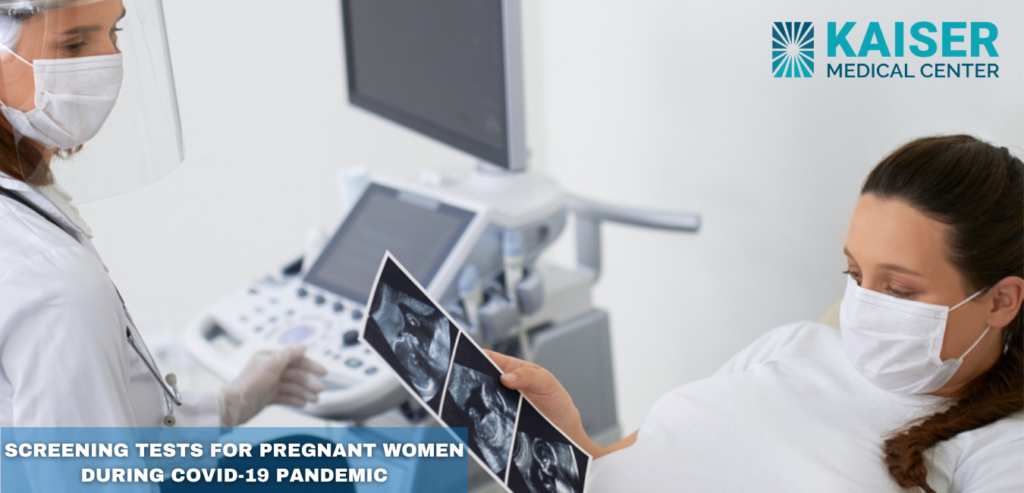Screening tests for Pregnant Women during Covid-19 Pandemic
Pregnancy can be a time of joyous anticipation and excitement for women and their families. But the coronavirus raises concerns about screening tests. Prenatal screening tests are a blanket term that covers a variety of tests your doctor may recommend you or you may choose to have during pregnancy.
Some prenatal screening tests are done to determine whether a baby is likely to have specific health conditions or chromosomal abnormalities, like down syndrome. Here some common screen test for pregnant women during pregnancy:
First-trimester prenatal screening tests
First-trimester screening is a combination of fetal ultrasound and maternal blood testing. It can help find out the risk that the fetus has certain birth defects. Screening tests may be used alone or with other tests. First-trimester screening has 3 parts.
- Ultrasound test for fetal nuchal translucency (NT)
Nuchal translucency screening uses an ultrasound test to check the area at the back of the fetal neck for extra fluid or thickening.
- Two maternal serum (blood) tests
These tests measure 2 substances found in the blood of all pregnant women:
- Pregnancy-associated plasma protein screening (PAPP-A) – This is a protein made by the placenta in early pregnancy. Abnormal levels are linked to a higher risk for chromosome problems.
- Human chorionic gonadotropin (hCG) – This is a hormone made by the placenta in early pregnancy. Abnormal levels are linked to a higher risk for chromosome problems.
Second-trimester prenatal screening tests
Second-trimester prenatal screening may include several blood tests. These are called multiple markers. They give information about a woman’s risk of having a baby with certain genetic conditions or birth defects. Screening is often done by taking a sample of your blood between the 15th and 20th weeks of pregnancy. The 16th to 18th is ideal.
- Alpha-fetoprotein screening (AFP)
This blood test measures the level of alpha-fetoprotein in your blood during pregnancy. AFP is a protein normally made by the fetal liver. It is in the fluid around the fetus (amniotic fluid) and crosses the placenta into your blood. The AFP blood test is also called MSAFP (maternal serum AFP).
Abnormal levels of AFP may be a sign of:
- Open neural tube defects (ONTD) such as spina bifida
- Down syndrome
- Other chromosome problems
- Problems in the abdominal wall of the fetus
- Twins. More than one fetus is making the protein.
- An incorrect due date. The levels of AFP vary throughout pregnancy.
Third trimester
Having a third-trimester screening is needed in order to check fetal growth, to check the amount of amniotic fluid, to complete a biophysical profile, to find out the position of a fetus, and to check the placenta.
How is an ultrasound scan done?
The specific details may vary slightly, but ultrasounds often follow the same process. Two types of ultrasounds can be done during pregnancy:
- Abdominal ultrasound: In an abdominal ultrasound, the healthcare provider puts gel on your abdomen. The ultrasound transducer glides over the gel to create the image.
- Transvaginal ultrasound: In a transvaginal ultrasound, the provider uses a smaller ultrasound transducer. He or she puts the transducer into the vagina and rests it against the back of the vagina to create an image. A transvaginal ultrasound makes a sharper image. It is often used in early pregnancy.
